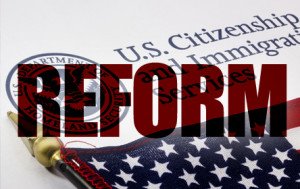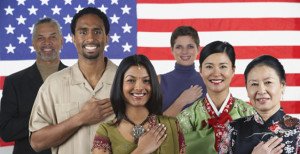H-1B Visa from Houston
 The Houston Chronicle published an article on H-1B visas, angling with the usual focus on Silicon Valley but also adding a focus on Houston. It notes that Houston is a city with many businesses relying on the H-1B visa, which allows skilled foreign national workers to work in the United States with a sponsoring employer for a maximum of two 3 year periods.
The Houston Chronicle published an article on H-1B visas, angling with the usual focus on Silicon Valley but also adding a focus on Houston. It notes that Houston is a city with many businesses relying on the H-1B visa, which allows skilled foreign national workers to work in the United States with a sponsoring employer for a maximum of two 3 year periods.
The article’s focus (outside the geographic locations) is on the number available. It recites the history of the H-1B visa: Congress set a cap of 65,000 in 1990 and added 20,000 visas with a specific Master’s and above category in the United States. There is an unfortunate conflation with the H-1B visa as the sole work visa program, as there are plenty of other employment-based visas in the United States: E, L, O, P. Regardless, the article’s concentration on the H-1B visa situation highlights the geographic and wider country limits on the visa and how certain employers are lobbying for more availability. The cap has not always remained stagnant. There was a period of increasing availability that ended in 2004. (the article omits this).
The practical implications of the low supply of H-1B visas versus the high demand is that applicants are subject to a lottery. Rather than being adjudicated on the merits, the application must first be selected to be adjudicated. Last year, there were 250,000 applications vying for adjudication. All H-1B visa applications must be submitted within a specific timeframe and the visa, if approved, begins on October 1. There are exceptions, as there are certain H-1B visas that are “cap-exempt.”
 Immigration Reform in the News
Immigration Reform in the News USCIS has released some resources to help immigrants adjusting to their new lives in the United States. The guides are considered comprehensive with practical information. They are available for free
USCIS has released some resources to help immigrants adjusting to their new lives in the United States. The guides are considered comprehensive with practical information. They are available for free